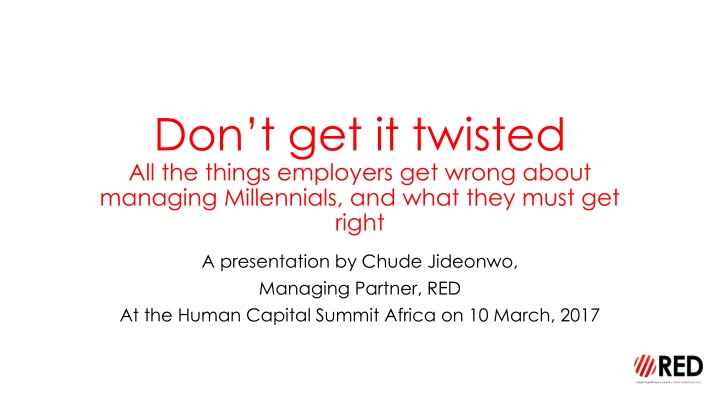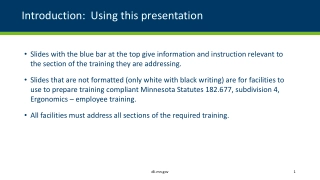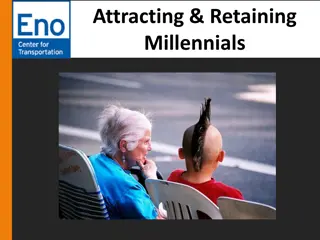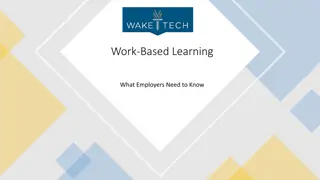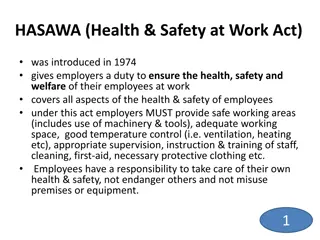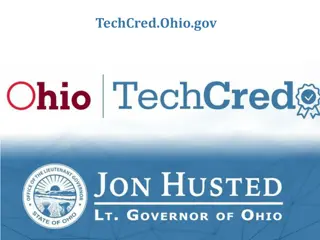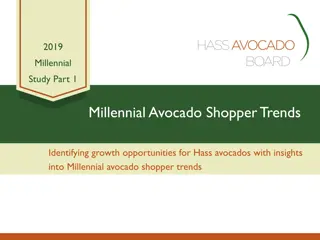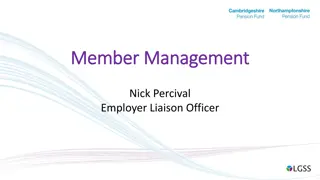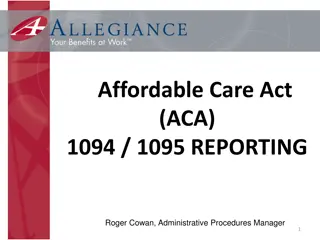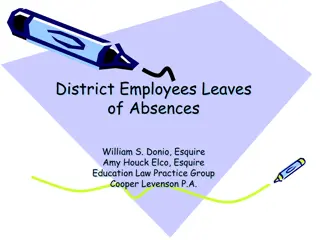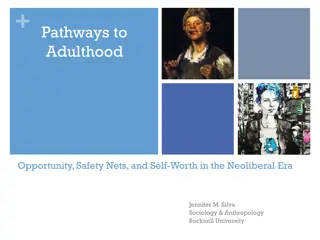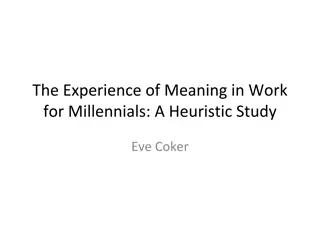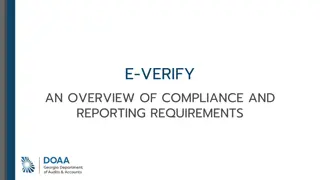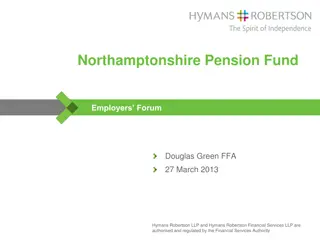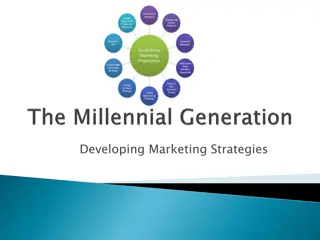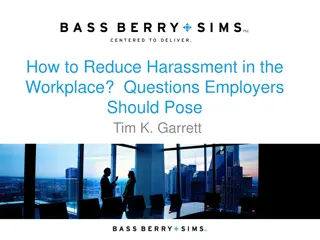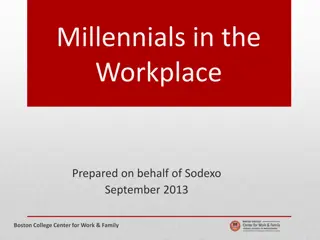Managing Millennials: What Employers Must Get Right
Millennials are a crucial part of the workforce, with distinct characteristics and expectations. This presentation highlights the common pitfalls employers face in managing Millennials and offers insights on how to leverage their potential effectively. By understanding their unique traits and needs, organizations can create a conducive work environment that nurtures Millennials' talents and drives success.
Download Presentation

Please find below an Image/Link to download the presentation.
The content on the website is provided AS IS for your information and personal use only. It may not be sold, licensed, or shared on other websites without obtaining consent from the author.If you encounter any issues during the download, it is possible that the publisher has removed the file from their server.
You are allowed to download the files provided on this website for personal or commercial use, subject to the condition that they are used lawfully. All files are the property of their respective owners.
The content on the website is provided AS IS for your information and personal use only. It may not be sold, licensed, or shared on other websites without obtaining consent from the author.
E N D
Presentation Transcript
Dont get it twisted All the things employers get wrong about managing Millennials, and what they must get right A presentation by Chude Jideonwo, Managing Partner, RED At the Human Capital Summit Africa on 10 March, 2017
Why always Millennials? As a group, millennials are probably the most analysed generation ever. Everyone wants to know how to get the best out of them. By 2020, millennials will make up 88% of the global workforce. But they did not fall from heaven.
What makes Millennials different? Better educated Reduced economic prospects Grew up with technology Less religiously affiliated More cynical of authority More interested in making a difference
What makes Millennials different? More time acquiring degrees in order to compete Less work experience on average They expect employers to invest in them Despise workplace politics Prefer collaboration to competition
RED RED is an organisation started, run, and designed to reach Millennials across the continent 55 full-time staff All under 35, including founders Average age: 25 More women in leadership
Problem statement (pre-2014) High staff turnover Entitlement complex Burn-out Zero work/life balance Worse, when I spoke to many other employers of millenials. They had the exact same complaints. I decided I had to build an exceptional talent pool.
Reboot 2014: Decision for things to change 2015: After company-wide strategy review, we asked ourselves: What is the one thing we would do that would make everything easier? Answer: Deliberate, realistic culture We began to hire very deliberately We began to listen to what people wanted rather than what was trending We stopped doing unless the people wanted it Leadership slowly began to get out of the way
BEHT Nigerian youth are not America's youth. Their own millennial dey see road and e tie rapper. Reasonable. Responsible. Empathetic. Mature. What did they want? What did they need? What could we do in our context?
For instance Salary surveys in RED (including before the last increases in December) Step 1: Commission industry wide compensation survey Step 2: Ask team members to advise on comparable salaries as part of survey Step MAJOR: Ask them what they think each other should earn Step 4: Activate as advised
No Macbooks iPads Free lunch Radical salaries Radical workspace
Yes Work from home every week, and one week a month Unlimited casual leave 5-year Refresh Leave Performance management as one-on-one meetings Shut down days
Yes Teach Tuesday Mentorships and pair system Reduce need for discipline Firing- with joy Great alumni network - work for free and on schedule Extended maternity leave Humans of RED
We were not made for work alone Faith Family Fun Wealth Rest
How? Make hiring intuitive 1-week test, direct-question interviews Maintain extremely high standards for hiring Zero tolerance for brilliant a**holes Deliberate fastidious about culture of joy Team leads assessed based on ability to lead. Care of team more important than financial goals Clarity and simplicity with performance management Micro-management as the enemy
Results CEO without CCTV 80 percent retention rates Personal retention targets met 50% increase in revenues despite less time spent at office
Engagement through the roof Direct feedback from staff Work from home data from leaders Joy survey Flow test 88.9% of staff find purpose from their work. 77.8% think they have grown professionally. 88.9% trust the company s leadership. (Same time last year: 70%, 69%, 66%) (This survey was anonymous, and administered this week)
How do you motivate millennials and develop them into leaders?
What motivates people Not high salaries Are they proud of their work? Do they think you deal with them honestly? Do they enjoy what they are doing, even if it's boring? Do they believe in the leadership? Do they think you care about them? Do they think they are growing? Do they think your business will keep growing and adding value? At end of day, how do they live a good, fulfilling life?
Power has changed hands Highly competitive workspace for talented workers So many options Massive entrepreneurial opportunity Highly demanding workforce Global awareness Peer pressure via social community Personal brand movement
The role of money Of course: Money is crucial, in this economy Dollar upheaval reducing value of naira, persistent inflation, general uncertainty, familial demands But, literally, money is not everything it needs be fair, and competitive You don t want to win on money especially if you re not a multinational You want to win on engagement; on attachment
Still. Dont Pander Overdo it Accept insolence Pit team members against each other Use money to motivate - e.g. part of payment based on target Do what you saw on a TED talk Hold on to the past once it was books, now it's video
Do No need for all-knowing boss Let them know everything is a work in progress Ask for opinions. Simplify everything - processes etc. Align corporate goals to individual goals Mentorships Where does the future lead?
In closing HR/Talent is no longer about suspensions and rules, it's about love and care. Our philosophy is something I suspect you should focus on: Be honest Treat people like adults
At RED, we have quickly moved toward the workplace of the future The ideal The prevailing reality Autonomy Control Focus on wellness/work-life balance Little time to refresh Flexibility driven by mobility Lack of flexibility Power changing hands from employers to employees Power rests with employer Laboratories Factories Collaboration Competition
